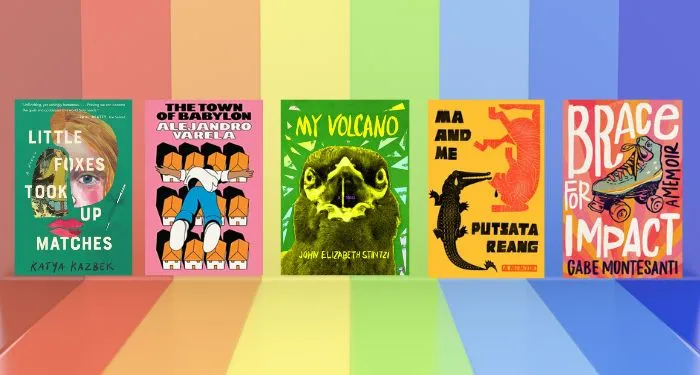
20 Must-Read Under the Radar Queer Books from the First Half of 2022
One of biggest joys of my reading life this year has been reading and falling in love with so many incredible queer books beyond the buzzy new titles and bestsellers. Don’t get me wrong — it’s fabulous that there are lots of queer books out there that everyone is talking about. But buzzy reads are just the beginning. There is so much more queer lit to discover!
“Under the radar” is a nebulous term that’s hard to define. I exist in a very queer-centric book world, so sometimes I’m surprised when titles that I’ve heard a lot about turn out to have very few Goodreads reviews, or aren’t getting much mainstream attention. Other times, I can’t understand why certain books aren’t being talked about around the queer bookish internet.
This list is a combination of both those kinds of books. I didn’t use a scientific method to create it, but I did set a few parameters. The majority of these books had less that 250 ratings on Goodreads at the time of writing. A few had more that that (up to 500), but I chose to include them anyway because they’re incredible and still haven’t gotten the attention they deserve.
I’ve focused mostly on contemporary fiction and memoir, with some speculative fiction, historical fiction, and essay collections thrown in. This reflects my personal reading tastes, but it also speaks to what kinds of queer books seem to get the most recognition. I often hear people talk about the explosion of queer YA and queer romance, but bemoan the fact that it’s still hard to find queer literary and contemporary fiction. I honestly have no idea where this sentiment is coming from, because I had to narrow this list down from close to 40 titles, and it doesn’t contain any romance or YA. (I love romance! I love YA! I just love other queer books, too, and there are so many.)
I hope you’re ready for your TBR to positively overflow with queer brilliance.
Fiction
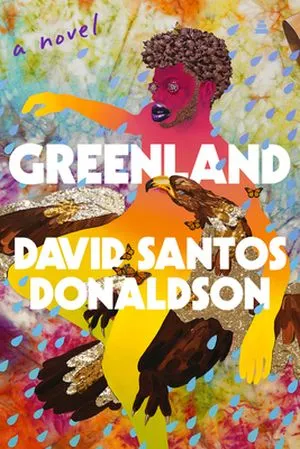
Greenland by David Santos Donaldson
Determined to finish his historical novel about Mohammed el Ad, the Black Egyptian lover of E.M. Forster, Kip, also a Black man in a relationship with a white man, locks himself in his Brooklyn basement. As he struggles to write Mohammed’s story, he finds himself writing more and more of his own — until time and memory begin to slip, and Mohammed’s story merges eerily with Kip’s own. This is a breathtaking, gorgeously layered novel in which the queer present and the queer past meet in messy, brilliant conversation. It’s a lot funny and a little bit strange, but mostly it’s a deeply moving and human story about being a Black gay man, about the mundane work of writing, about where stories come from, and who they’re for, and why we tell them.
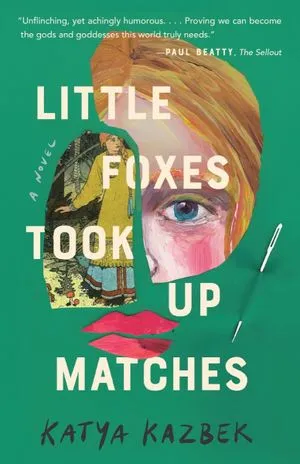
Little Foxes Took Up Matches by Katya Kazbek
In this poignant coming-of-age story set in Moscow in the early 1990s, just after the collapse of the Soviet Union, a young boy slowly makes space for himself in a harsh and unforgiving world. Mitya has always felt protected by the magic of a sewing needled he swallowed as a baby. But as his family’s — and his country’s — future grows more uncertain, and he begins to express his queerness and his nonconforming gender, the magic of the sewing needle is no longer enough. With the help of several houseless people and indie musicians he meets on the streets, he comes to understand the power of his own voice.

Buffalo is the New Buffalo by Chelsea Vowel
These speculative stories run the gamut from a Métis superhero in 1950s Edmonton to a woman who uploads her consciousness into a computer. Vowel includes fascinating mini-essays after each story, explaining her inspirations, goals, and influences. The stories are also heavily footnoted. It makes for an immersive and unique reading experience. By focusing not only on imagined futures and pasts, but on the here and now as well — the act and process of writing — Vowell explores the possibilities of Métis and Indigenous futurism, and the ways in which speculative fiction can shape how we live in the world today.

Rainbow Rainbow by Lydia Conklin
These stories, often dark, are about the complicated loneliness of queer coming of age and the bright, sharp joy of finding places and people to belong to. Conklin’s characters include kids and teenagers who have survived abuse, a queer couple trying to get pregnant, lovers navigating pandemic hookups, and trans people in many stages of self-discovery. It’s refreshing to read stories about these flawed and messy queers, characters who make mistakes and unhealthy choices, who are not good, or easy, or simple.
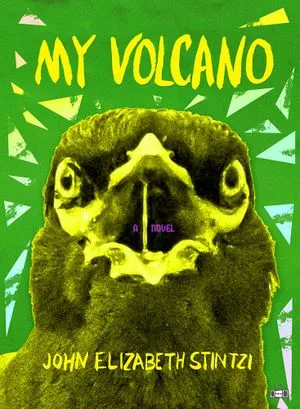
My Volcano by John Elizabeth Stintzi
There is nothing I can write about this book that will capture the whole of it. It is a piece of surreal and beautiful art that defines categorization and explanation. In June of 2016, a massive volcano begins growing in Central Park. From there, a disjointed but beautifully symphonic narrative emerges, as characters all over the world begin to experience strange events. Somehow, in writing about giant bugs and time travel and weird escape rooms and magical bees, Stintzi has hit on some essential truth about what it feels like to be a human on this bizarre, heartbreaking, ever-changing, impossible planet.

The Other Mother by Rachel M. Harper
This is the queer family saga to end all family sagas. It’s bighearted and alive, full of characters so detailed in their histories and desires, their choices and regrets and talents, that it seems almost unbelievable that they aren’t real. It unfolds over several decades, in the POVs of seven people who make up a multiracial, multigenerational, blood and chosen family who love and hurt and rage and forgive each other. It’s about silence and homophobia and art, about the consequences of secrets and the pain of starting over, about queer joy and queer family-making, and the messy intersections of racial, cultural, biological, and familial lineage.

The Town of Babylon by Alejandro Varela
Andrés is a gay Latine professor who returns to his suburban hometown to help care for his aging parents and attends his 20th high school reunion, where he encounters his past, and, most poignantly, his own changed and changing understanding of himself and the place(s) he comes from. Fans of funny, voice-driven novels, rejoice! This is a scathing critique of white America and the so-called American Dream, a richly textured portrait of ordinary queer life, a middle-aged love story, a moving family drama, and one of the best portrayals of suburban life — in all its violence, absurdity, and contradiction — I’ve ever read.
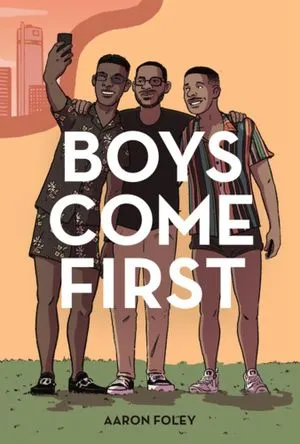
Boys Come First by Aaron Foley
There aren’t enough books about queer friendship in the world, which makes this funny and heartfelt novel about three Black gay friends in Detroit even more of a joy. Dom, Troy, and Remy are all in different places in life, and dealing with different challenges. But as they muddle their way through career messes and family drama, disastrous hookups and flailing relationships, they find they can always count on each other.
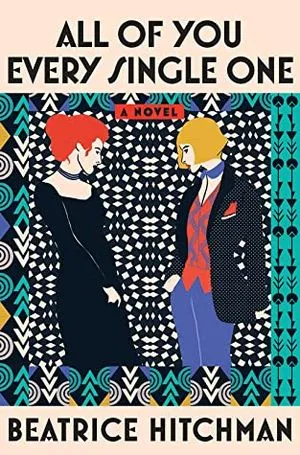
All of You Every Single One by Beatrice Hitchman
I don’t know what we’ve done to receive so many brilliant queer family dramas this year, but I am not complaining. This historical is a portrait of a queer family — its formation and splintering and coming back together — over 40 tumultuous years. It beings in Vienna in 1910, as twenty-something couple Eve and Julia begin a new life together in a new city. They find family with the other tenants of their apartment building, and, over decades, weather betrayal and heartache and the terror of war, big mistakes and little joys, and the consequences of impossible choices.
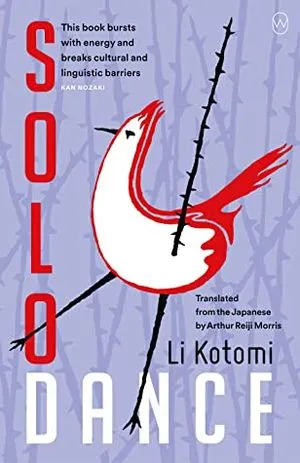
Solo Dance by Kotomi Li, translated by Arthur Reiji Morris
Cho Norie is a twenty-something gay Taiwanese woman living in Japan and working an office job. She’s not only keeping her sexuality hidden, but also the traumatic events that led her to move to Japan in the first place. This queer coming-of-age novel explores the tensions between living openly and the relative safety of closet. It’s also a moving story about contemporary queer life in Japan and Taiwan, workplace culture, and healing from trauma.
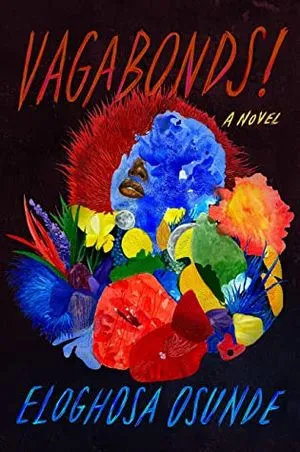
Vagabonds! by Eloghosa Osunde
This novel, told in a collection of linked stories, feels like a living ode to the city of Lagos and the queer and trans people who live on its margins. It’s not a simple or a straightforward book, and it doesn’t adhere to linear storytelling norms and conventions. It’s vivid and meandering, sometimes funny and sometimes painful, a kaleidoscope of lives and places and moments.
Nonfiction
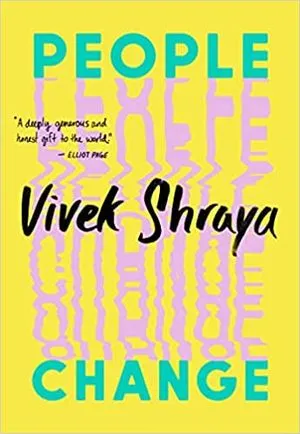
People Change by Vivek Shraya
I am here for everything trans writer, musician, and multimedia artist Vivek Shraya has to say — whether it’s a novel, play, book of poetry, comic, or, in this case, brilliant nonfiction. This slim book is a celebration of change, of all the selves we move through over the course of a life. She examines change through a variety of lenses — from celebrity comebacks to her own marriage and divorces. She writes beautifully and insightfully about gender, music, pop culture, relationships, queerness, fashion, and so much more.
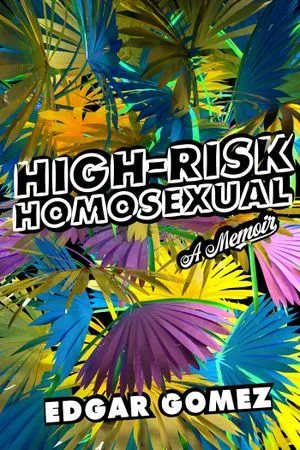
High-Risk Homosexual by Edgar Gomez
This is a beautiful memoir-in-essays about queer joy and toxic masculinity, about the sacredness of queer spaces and the violence of femmephobia, about drag and performance and sex and friendship. Gomez writes with humor and vulnerability about their multi-faceted queer femme Latine identity, and about the people and places that have shaped and continue to shape them.
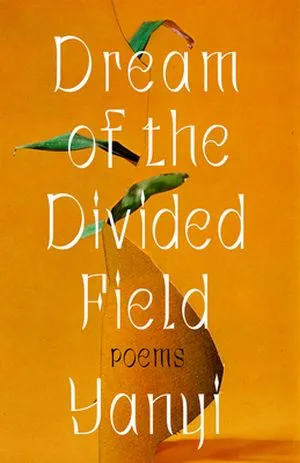
Dream of the Divided Field by Yanyi
In his latest collection, Yanyi writes about transformations and transitions — bodies transitioning, relationships transforming, the ways that memories shift with time, changing our understanding of the past and the present. His poems are sparse and startling and overflowing with the beautiful, surprising imagery I have come to love in his work.
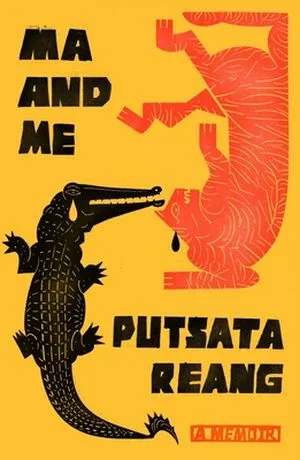
Ma and Me by Putsata Reang
Putsata Reang was only a baby when her family fled Cambodia. They spent weeks on a boat, and when Reang appeared lifeless and sick, the captain urged her mother to throw her overboard. Instead, her mother protected her and eventually made sure she got medical care. In this memoir, Reang explores the impact this story and this debt has had on her life, as she’s tried to make her mother proud while also living her own life as a queer woman. It’s a thoughtful, challenging, beautiful book about a complicated mother-daughter relationship and about the often hidden weights that immigrants and refugees carry.
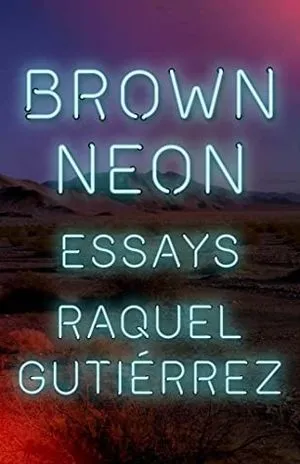
Brown Neon by Raquel Gutiérrez
Queer essay collections are having a really great year! In this collection, Raquel Gutiérrez writes about place, terrain, architecture, and landscape — the physical landscapes of the Southwest, the emotional landscapes of queer culture and history, and the complicated ways that these borders intersect in her own life as a queer brown woman and artist.
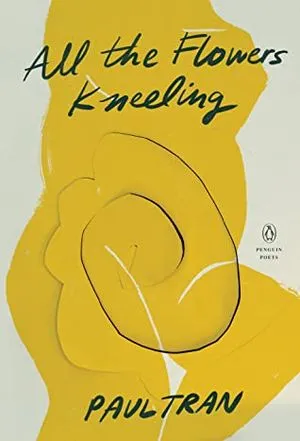
All the Flowers Kneeling by Paul Tran
Tran’s poetry has a kind of inner momentum that pulls you along; once you start reading it, it is almost impossible to stop. These visceral poems are sometimes devastating, but they are also playful at times, resilient and defiant. They are about surviving sexual violence and generational trauma, about the costs of U.S. imperialism and the violence done against bodies that do not conform. But they are also about softness and art and the beauty of creating new languages of self, desire, and possibility.
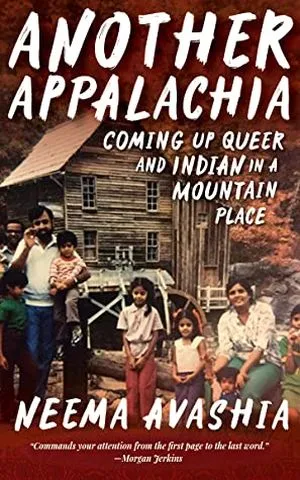
Another Appalachia by Neema Avashia
What does it mean to belong somewhere? What does it mean to love a place and leave it? How do the places we come from, and the places our parents come from, and the places we chose for ourselves, affect our understanding of who we are? Avashia delves into these questions and more in this wonderful collection of essays about being queer and Indian and Appalachian. She writes about the Indian aunties she grew up with and the history of the chemical industry in West Virginia, gun violence and racism, Indian and Appalachian food, immigration and assimilation.
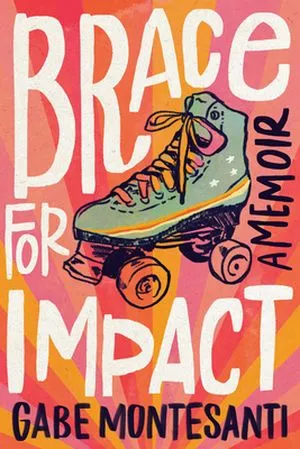
Brace for Impact by Gabe Montesanti
In her early twenties, after moving to St. Louis with her partner, Montesanti joins roller derby, hoping to build a queer community in her new city. She does find community — and unconditional friendship — but roller derby also forces her to confront the trauma of her childhood, her disordered eating, and her relationship with her emotionally abusive mother in more direct ways than she’s ever done before. This is a gutting but hopeful memoir about physical and emotional pain, the work of healing, the magic of friendship, and, of course, roller derby.
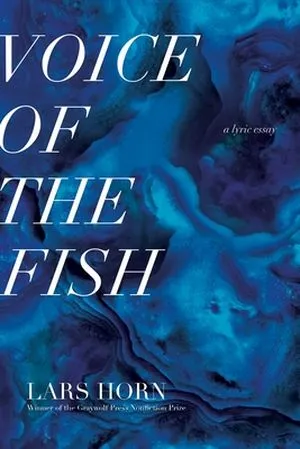
Voice of the Fish by Lars Horn
It’s hard to describe this beautiful and haunting book of hybrid nonfiction. If you enjoy books that blur the lines of genres and refuse to sit neatly in one place, this one is for you. Using a variety of forms, including lists, passages from from the work of other philosophers and writers, and seemingly-straightforward lyric essays, Horn explores language and its loss, transness and desire, living in a body that changes, translation, art, illness, the ocean, history. They slide easily between ideas and between memory and myth. It’s a slippery surprise of a book that will linger long after you finish it.
If you’re looking for even more fantastic queer books from the first half of the year, check out Danika’s excellent posts rounding up new LGBTQ+ books out in March, April, and May!









